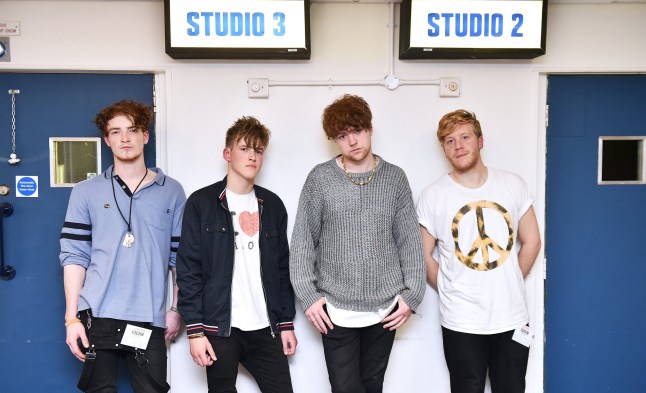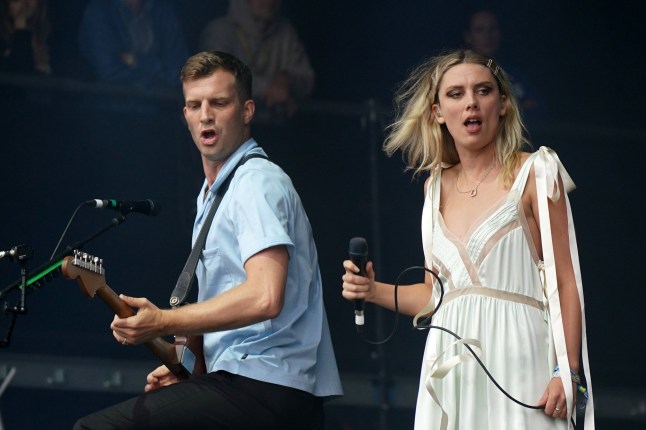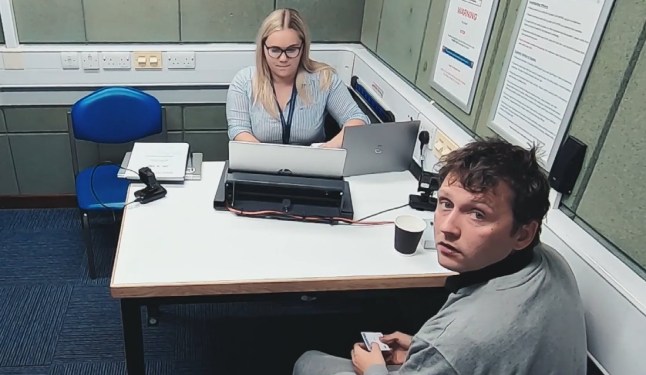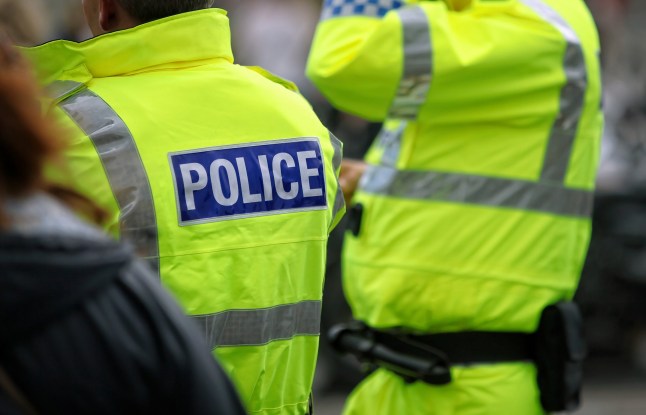
Up-and-coming bands are forced into dangerous situations while touring due to massive cost pressures, the guitarist of rock band Wolf Alice has said.
Joff Oddie pointed to the 2016 car crash that killed Warrington band Viola Beach and their manager as an example of the kinds of tragedies that can result.
He was appearing in front of MPs alongside a panel of top music industry figures in parliament today, arguing in favour of a ‘grassroots levy’ on live music tickets.
The extra £1 would go towards supporting new artists and bands with the costs of starting out, as well as small venues and rehearsal spaces.
Joff, who formed Mercury Prize-winning Wolf Alice with singer Ellie Rowsell in 2010, went through a long list of expenses faced by artists ahead of a tour – including insurance, fuel, accommodation and manufacturing merch.
He recalled sleeping on people’s floors while touring in the ‘unbelievably tight’ early years of the band, and how he put his student loan into funding a tour.
However, he said the pressures are considerably worse today: ‘It’s a huge amount of things that artists have to pay for in order to go out on the road.
‘And we just about made it work – I can honestly say, I’m not sure how Wolf Alice would make it work today.’
In addition, there are ‘real risks’ to ‘sending young people out on the road on really tight shoestring budgets’, Joff argued.
To view this video please enable JavaScript, and consider upgrading to a web
browser that
supports HTML5
video
He said: ‘I think we want to remember what happened in the Viola Beach affair, where a group of young people were out on the road, had to make a journey.
‘They couldn’t afford another driver, couldn’t afford a hotel, they had to get there.
‘We’ve all been in that position, people on the road. I think we do have a duty of care, and a kind of moral responsibility to not put young people in that position.’
Viola Beach – Kris Leonard, River Reeves, Tomas Lowe and Jack Dakin – were killed along with manager Craig Tarry when their car fell from a bridge outside Stockholm in 2016.
Kris, River and Jack were 20 years old when they died. Tomas was 27, and Craig was 33.
Six months after the crash, the band achieved a posthumous number one album with their self-titled debut.

This morning’s committee hearing took place as Metro joined forces with the Mayor of London and TfL to promote grassroots music venues in the capital.
Sir Sadiq Khan and top figures from the music world travelled to the Outernet installation outside Tottenham Court Road station for the launch of the London Grassroots Music Tube Map.
The eye-catching artwork celebrates artists and venues who have made a lasting contribution to the city’s culture, encouraging people to check out the gig opportunities on their doorstep.
Mark Davyd, the Music Venue Trust founder who spoke to Metro ahead of the launch, was also among the panel who appeared in front of the committee today.
He revealed the grassroots music industry is heavily reliant on alcohol sales, saying: ‘Really, at grassroots level, it is the alcohol sales that are sponsoring pretty much everything.’
The ‘dramatic generational shift in the consumption of alcohol’, with young people cutting down on booze, poses a surprising threat as a result, he said.
Mark continued: ‘In 2024, the venues subsidised the production of live music by about £160 million across all our venues by the sale of alcohol.
‘Now, you could argue it’s part of the whole offer, but what happens when 30% plus of your audience stop drinking alcohol? And I’m afraid the answer isn’t kombucha.’
According to the Music Venue Trust, adding a £1 levy to all tickets sold for stadium or arena gigs in the UK would raise more than £17.6 million for grassroots music each year.
The voluntary move was backed by Parliament’s Culture, Media and Sport Committee in November last year.
Get in touch with our news team by emailing us at webnews@metro.co.uk.
For more stories like this, check our news page.


